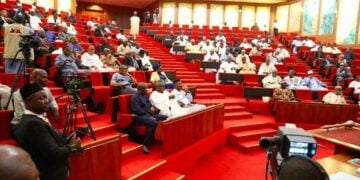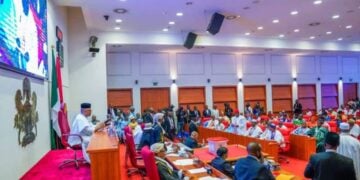The Energy Commission of Nigeria (ECN), in partnership with the United Nations Industrial Development Organisation (UNIDO), has convened a Kick-Off Review Meeting with key industrial stakeholders in Kaduna. The gathering marked the launch of the Global Environment Facility (GEF) project titled “Improving Nigeria’s Industrial Energy Performance & Resource Efficient Cleaner Production through Programme Approaches & the Promotion of Innovation in Clean Technology Solutions.”
The multi-million-dollar initiative seeks to embed Resource Efficiency and Cleaner Production (RECP) best practices within selected small, medium and large-scale enterprises across the nation. Under the project, participating industries will adopt Industrial Energy Efficiency (IEE) measures and implement Energy Management Systems (EnMS) to optimise operations, curb waste and reduce greenhouse gas emissions.
At the heart of the event were two addresses delivered by leading practitioners in the field. First to the podium was Engr. Okon Ekpenyong, Industrial Energy Efficiency Consultant to the ECN. He underscored the fundamental principle of energy efficiency: delivering the required service while consuming less power. “The whole message here is, how to use our energy more efficiently,” he declared, recalling the evolution of lighting technologies from 60-watt incandescent bulbs to compact fluorescent lamps and today’s advanced LED alternatives. He highlighted that modern LEDs consume barely five watts yet emit brighter illumination, illustrating how efficiency improves performance while cutting costs.
Turning to industrial applications, Engr. Ekpenyong explained that the same tenets apply to machinery and production lines. “When you talk about energy efficiency, it’s nothing more than the ability to get the service you want while reducing your energy consumption,” he said.
“So, when you come back to industries, we are talking about you getting your production going on with your equipment with a lower amount of energy but higher production.”
He further stressed that enterprises must measure energy expenditure meticulously to ascertain true production costs and identify potential savings.
In his response, the accountant, Hulhulde Rice Mill Limited, Kaduna State, Mr Nuradeen Saminu, corroborated Engr. Ekpenyong’s insights and provide a candid appraisal of the sector’s challenges. “We really appreciate this gesture. We are not looking at it from the angle of the company alone,” he remarked.
Reflecting on personal experience with prepaid metres at home, Mr Saminu said the session resonated deeply. “Energy is what has been consuming our income in this company, so we are going to work with you as a team to reduce our energy consumption.”
Mr Saminu revealed that Hulhulde Rice Mill’s minimum monthly energy costs range between ₦ 32,000,000 and ₦ 40,000,000, figures that soar further following recent tariff reviews. Coupled with economic reforms and evolving government policies, he lamented that the company’s production levels have stagnated since January 2025, yet energy outlays remain stubbornly high.
Other industries visited during the kick off review meeting at their individual premises include Chello Industries Limited; FaLGate Food Limited; Arewa Metal Container (ARMECO) Limited; Seven Up Bottling Company; and Kaduna Furniture and Carpets Company (KFCC) Limited.
Industry representatives present at the meeting voiced enthusiasm for the ECN–UNIDO collaboration. Many pledged to adopt the recommended RECP frameworks and EnMS protocols, anticipating that enhanced energy monitoring and management will bolster their competitiveness and sustainability. The project’s programme approach includes training workshops, on-site audits and the establishment of energy performance indicators, with periodic reviews planned over the next two years.
As Nigeria strives to meet its commitments under the Paris Agreement and bolster its industrial base, the partnership between ECN and UNIDO via the GEF project offers a timely blueprint. By mainstreaming cleaner production and fostering innovation in clean technology, the initiative aims not only to cut costs for enterprises but also to reduce the country’s carbon footprint. Stakeholders have been urged to remain actively engaged as the programme unfolds, ensuring that energy efficiency becomes integral to Nigeria’s industrial transformation. Observers say the success of this project could serve as a model for other African nations grappling with similar industrial energy challenges.





